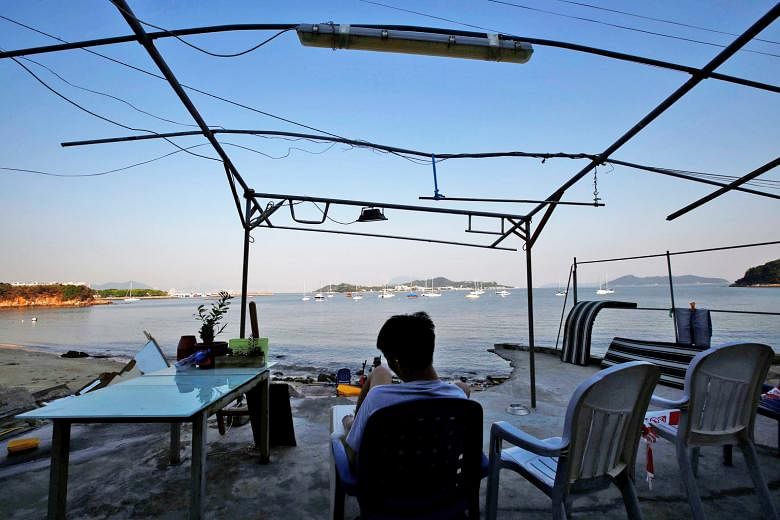HONG KONG • As Hong Kong recovers from one of the strongest typhoons in decades, a controversial plan to build a vast artificial island is facing intense scrutiny from environmental groups and academics, who say it will be vulnerable to rising sea levels and storms.
The East Lantau Metropolis plan, backed by powerhouse property developers including New World Development and Henderson Land, is the government's favoured option to address a chronic housing shortage in one of the world's most expensive property markets.
But the project, which envisions housing more than one million people across 1,700ha of reclaimed land, is probably the worst choice, said Mr Lam Chiu Ying, a former director of Hong Kong's weather bureau. "Unfathomable climate risk, destruction of 22 sq km of natural marine habitat, extremely costly - with the cost comparable to the total government reserves - and strategically vulnerable transport-wise," he said.
Local media has estimated the cost at up to HK$500 billion (S$88 billion), while environmental groups estimate the cost at HK$700 billion or more.
With a population of more than seven million, the former British colony is one of the world's densest places.
The city is largely adept at dealing with typhoons, which occur regularly in southern China, yet the authorities underestimate the impact of rising sea levels and more extreme future weather, environmentalists say.
Hong Kong saw unprecedented flooding and damage during September's Typhoon Mangkhut, with seawater swallowing roads while public transport networks were largely paralysed.
Mr Walton Li of Greenpeace said that as Hong Kong faces stronger typhoons and higher storm surges, the risk of flooding will dramatically increase.
Our Hong Kong Foundation, a think-tank backed by property developers and former chief executive Tung Chee Hwa, is the driving force behind the Lantau reclamation project. The group has deployed a glitzy marketing campaign with the message that reclamation is the best solution considering "cost-effectiveness, environmental conservation, planning and infrastructure, and the preservation of property rights".
A foundation representative told Reuters the project could be built higher to address rising sea levels and heavy tropical storms, adding that waves during typhoons were not estimated to exceed 2m where the island would be built. The Hong Kong government has said the development would be built to standards that accounted for climate change.
REUTERS

